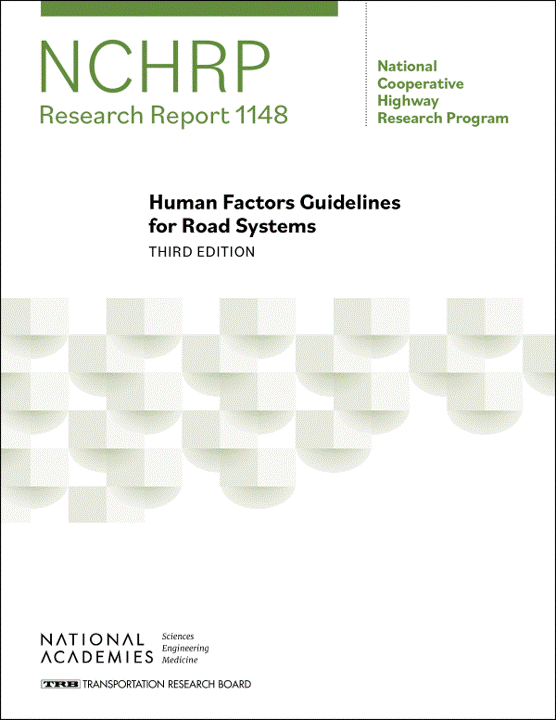Human Factors Guidelines for Road Systems
NCHRP's Human Factors Guidelines for Road Systems offers assistance to those involved in planning, designing, constructing, and operating multimodal transportation systems to adequately account for the interaction between road users and the facilities, particularly users who are most vulnerable to crashes.
Driver error contributes to most roadway crashes. Design and traffic operation features can contribute to misperceptions, slow reactions, and poor decisions. Applying knowledge from psychology, physiology, sociology, biomechanics, and kinesiology to designs can help reduce the likelihood and consequences of human error.
Supplemental to this report is NCHRP Web-Only Document 425: Development of the Human Factors Guidelines for Road Systems.
Who is NCHRP?
The National Cooperative Highway Research Program conducts research in problem areas that affect highway planning, design, construction, operation, and maintenance in the United States.
Administered under the Transportation Research Board (TRB), NCHRP is a collaborative effort between the Federal Highway Administration (FHWA) and the National Academy of Sciences.

